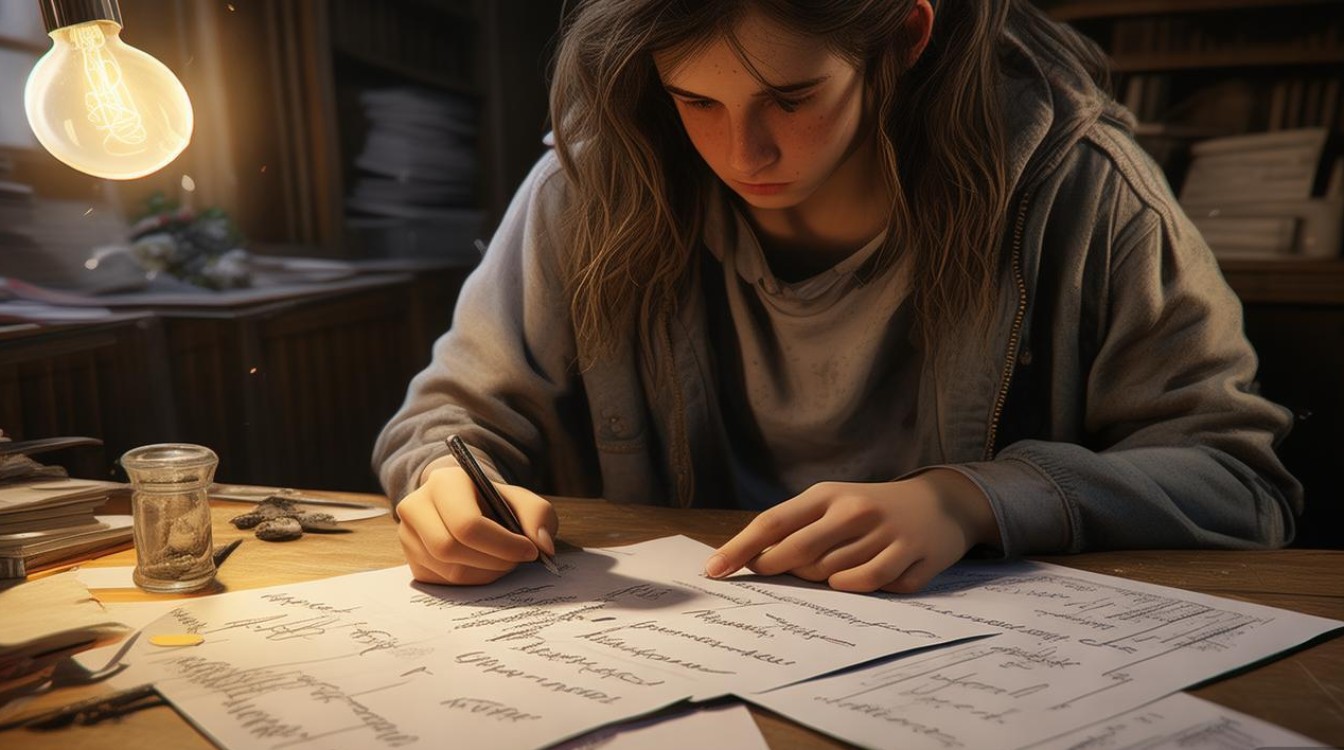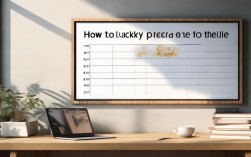这里为你提供一个详细的写作指南,包括写作思路、结构分析、不同层次的范文以及好词好句,希望能帮助你写出一篇优秀的作文。

写作思路与结构分析
一篇关于“我犯了一个错”的作文,关键不在于错误本身有多么惊天动地,而在于你如何描述犯错的过程、内心的挣扎、错误带来的后果,以及最重要的——你从中学到了什么。
经典结构(四段式):
-
引言 - 错误的序幕
- 开篇点题: 直接或间接地引出你犯的那个错误,可以用一个场景、一个感受或一句反思来开头。
- 背景铺垫: 简要交代当时的情况,比如是什么事件、什么人、什么环境,让你有机会犯错,这能让读者更好地理解你的处境。
- 设置悬念: 可以暗示这个错误给你带来了巨大的影响,为下文做铺垫。
-
发展 - 错误的发生与挣扎
- 详细描述过程: 这是文章的核心,具体、生动地描述你是如何一步步犯错的,不要只是说“我撒了谎”,而是要描述:
- 起因: 为什么要犯这个错?(为了逃避惩罚、为了获得表扬、出于一时冲动)
- 经过: 具体做了什么?(如何编造谎言、如何隐瞒事实、内心如何天人交战)
- 内心活动: 这是最能打动人的部分,描述你犯错时的紧张、犹豫、侥幸心理和一丝不安。
- 使用感官描写: 描述你当时的感受(心跳加速、手心出汗)、看到的表情、听到的声音,让读者身临其境。
- 详细描述过程: 这是文章的核心,具体、生动地描述你是如何一步步犯错的,不要只是说“我撒了谎”,而是要描述:
-
高潮与结局 - 错误的代价与真相
- 谎言的破灭/后果的显现: 错误最终是如何被发现的?或者它带来了什么样的直接后果?(事情败露、朋友失望、自己陷入更深的自责)
- 面对现实: 描述你被发现或意识到严重性后的反应,是惊慌失措、羞愧难当,还是鼓起勇气承认?
- 他人的反应: 父母、老师或朋友的反应是怎样的?他们的反应如何加深了你的感受和教训?
-
- 反思与成长
- 承认错误,承担责任: 明确表达你认识到了自己的错误,并愿意承担后果。
- 深刻的反思: 这部分是文章的灵魂,详细阐述你从这次错误中学到了什么。
- 关于诚实:我明白了谎言就像雪球,越滚越大。
- 关于责任:我学会了要为自己的行为负责,而不是逃避。
- 关于他人:我意识到我的行为伤害了爱我的人。
- 关于自我:我认识到真正的勇敢不是从不犯错,而是在犯错后有勇气承认和改正。
- 总结升华: 这次经历如何改变了你?它让你成为一个怎样的人?用一句富有哲理或情感的话结尾,让文章余味悠长。
范文示例
这里提供三个不同层次和角度的范文,供你参考。
谎言” (初中/高中通用)
The Weight of a Lie**
We all make mistakes, but some mistakes leave a heavier mark than others. For me, that mark was etched not by a major failure, but by a small, seemingly insignificant lie that grew into a mountain of guilt.
It happened during my final exams last semester. Math had always been my Achilles' heel, and I was terrified of failing. The night before the exam, instead of reviewing, I succumbed to the temptation of playing video games. The next day, sitting in the exam hall, my mind was a complete blank. Panic set in. When I saw a classmate's paper glance my way, a terrible idea took root. I copied a few answers. It felt like a small victory at the time, a quick fix to my own negligence.
However, the victory was short-lived. The guilt was immediate and suffocating. Every time the teacher looked at me, I felt my face burn. I couldn't look my parents in the eye, knowing I had deceived them with a false sense of security. The lie I had told to myself—that I could get away with it—had now trapped me. A week later, the truth came out. A teacher noticed the uncanny similarity between my paper and my classmate's. I was called into the office, and with a trembling voice, I confessed everything.
The scolding from my parents was nothing compared to the shame I felt in my own heart. But as the storm passed, a profound lesson emerged. I learned that a moment of weakness can have long-lasting consequences. More importantly, I learned that honesty, in its rawest form, is the foundation of trust—trust in others, and crucially, trust in myself. That mistake was painful, but it was a necessary lesson. It taught me that true success isn't just about getting good grades; it's about having the integrity to earn them, even when it's hard.
自私” (高中/大学适用)
The Echo of Selfishness**
Mistakes are not always about what we do, but often about what we fail to do. My most significant mistake was an act of omission, a moment of profound selfishness that I still regret to this day.
It was during my senior year of high school. My best friend, Lila, had been working tirelessly on her college application essay for months. It was a deeply personal piece about her family's struggle and her dreams. One afternoon, she excitedly asked me to read it and give my feedback. I was in the middle of my own stressful college applications, and I dismissed her with a casual, "Yeah, looks good. Good luck," without even reading a single page.
A few weeks later, Lila received a rejection letter from her dream school. Devastated, she called me, her voice breaking. "I just don't understand," she sobbed. "I thought my essay was strong." In that moment, a wave of cold realization washed over me. I had been so consumed by my own anxiety that I had completely failed to support the person who had always been there for me. My selfishness hadn't just been thoughtless; it had been a betrayal of our friendship.
I will never forget the look on her face when I finally confessed my mistake and read her essay. It was beautiful, powerful, and deserved more than a careless glance. My apology was met with silence, but that silence spoke volumes. I had let her down. That experience taught me that friendship is not just about sharing happy moments; it's about showing up for each other in times of need. It’s about being present, putting aside our own troubles to lift a friend up. That mistake taught me empathy in the most painful way, and it's a lesson I carry with me, reminding me to always choose compassion over self-absorption.
傲慢” (更深刻的反思)
The Arrogance of Assumption**
Some mistakes stem not from malice or fear, but from a more subtle poison: arrogance. My greatest mistake was born from the assumption that I knew better than anyone else, an assumption that led to a painful but invaluable lesson.
As a project leader for a university competition, I was full of confidence. My team was talented, but I believed my vision was the only one that mattered. During a critical brainstorming session, a quieter team member, Alex, proposed an idea that was different from mine. Instead of considering its merits, I shot it down with a condescending smile. "That's an interesting thought, Alex, but let's stick to the plan. I've already thought it all through," I said, effectively silencing him.
My arrogance convinced me that I was making the right decision for the team. We pushed forward with my idea, and for a while, it seemed to work. But as the deadline approached, we hit a wall. My plan had a fatal flaw that I was too blind to see. It was only when we were on the verge of collapse that another team member gently suggested revisiting Alex's original concept. Reluctantly, we did. Alex's idea, though simple, solved our core problem perfectly. We won the competition, but the victory felt hollow.
I apologized to Alex, but the damage to our team dynamic and my own ego was done. I learned a hard truth: true leadership is not about having all the answers; it's about fostering an environment where all voices are heard. Arrogance closes doors, while humility opens them. This mistake taught me to listen, to value diverse perspectives, and to understand that the collective wisdom of a team is always greater than the ego of a single leader. It was a humbling experience that stripped away my pride and replaced it with a more profound respect for collaboration.
好词好句积累
描述犯错时:
- My heart sank. / My blood ran cold. (我心沉了下去/我感到不寒而栗。)
- A wave of panic washed over me. (一阵恐慌席卷了我。)
- I was caught in











